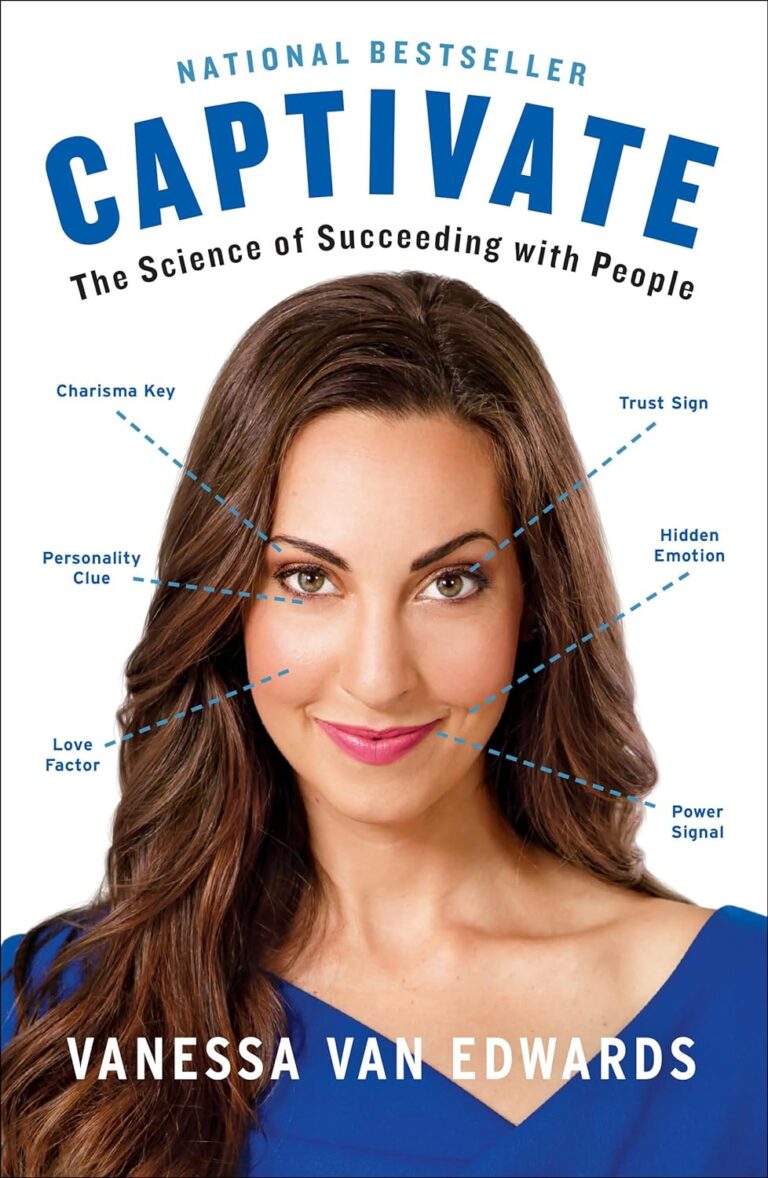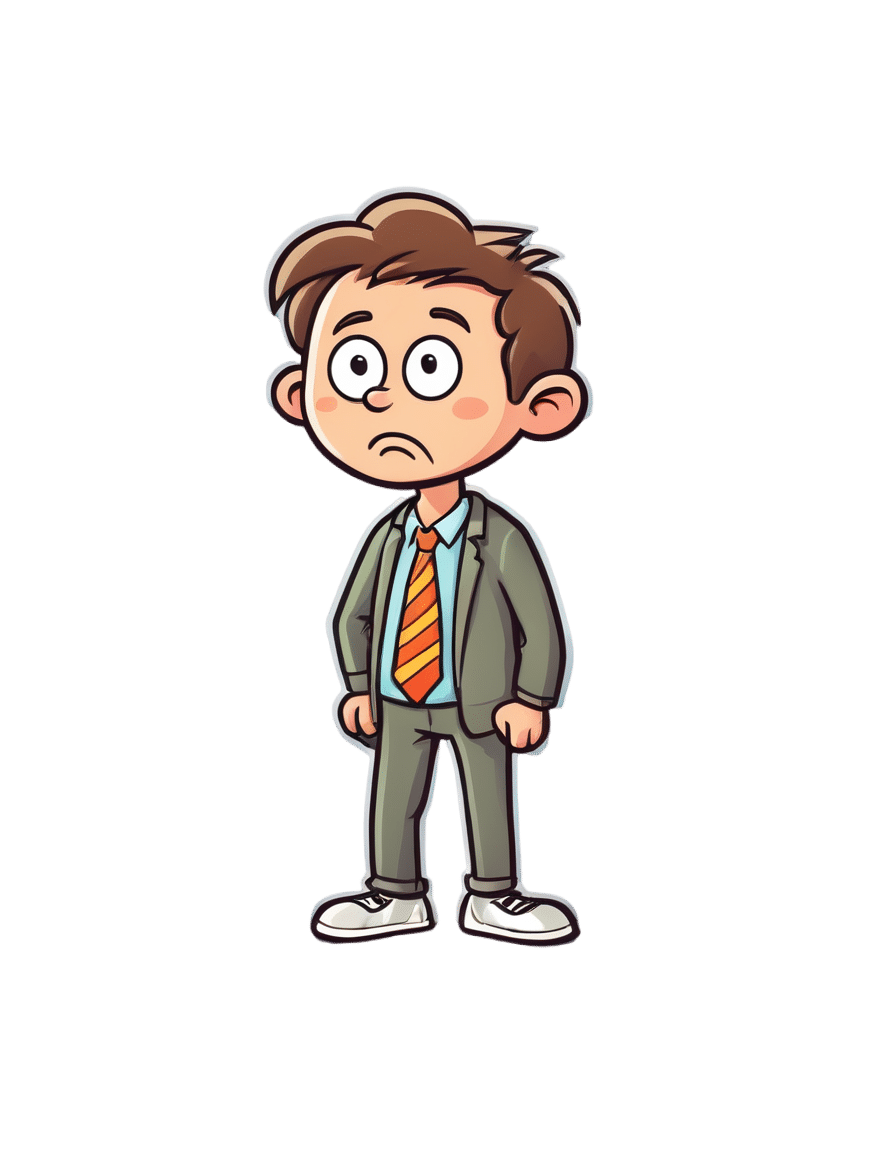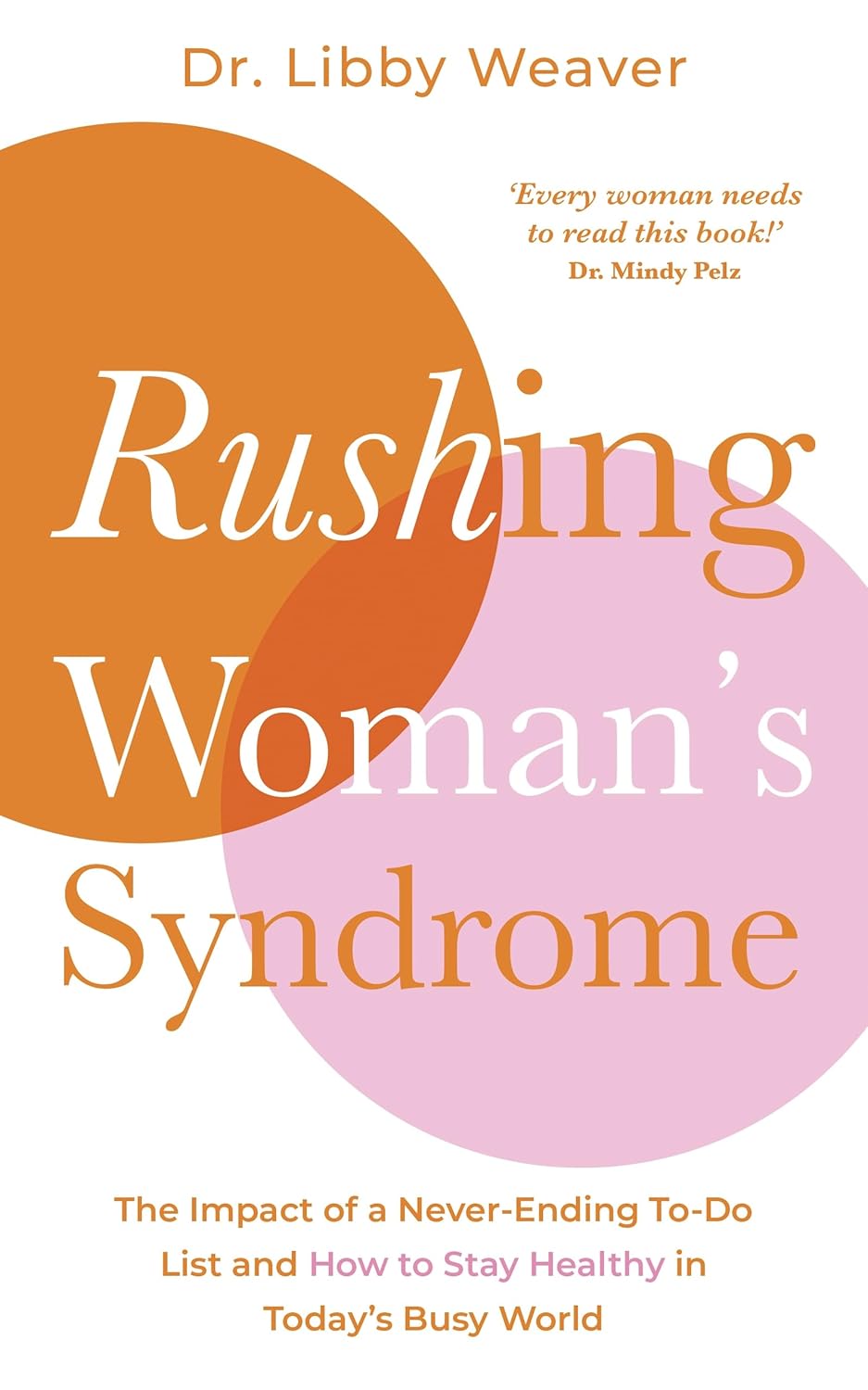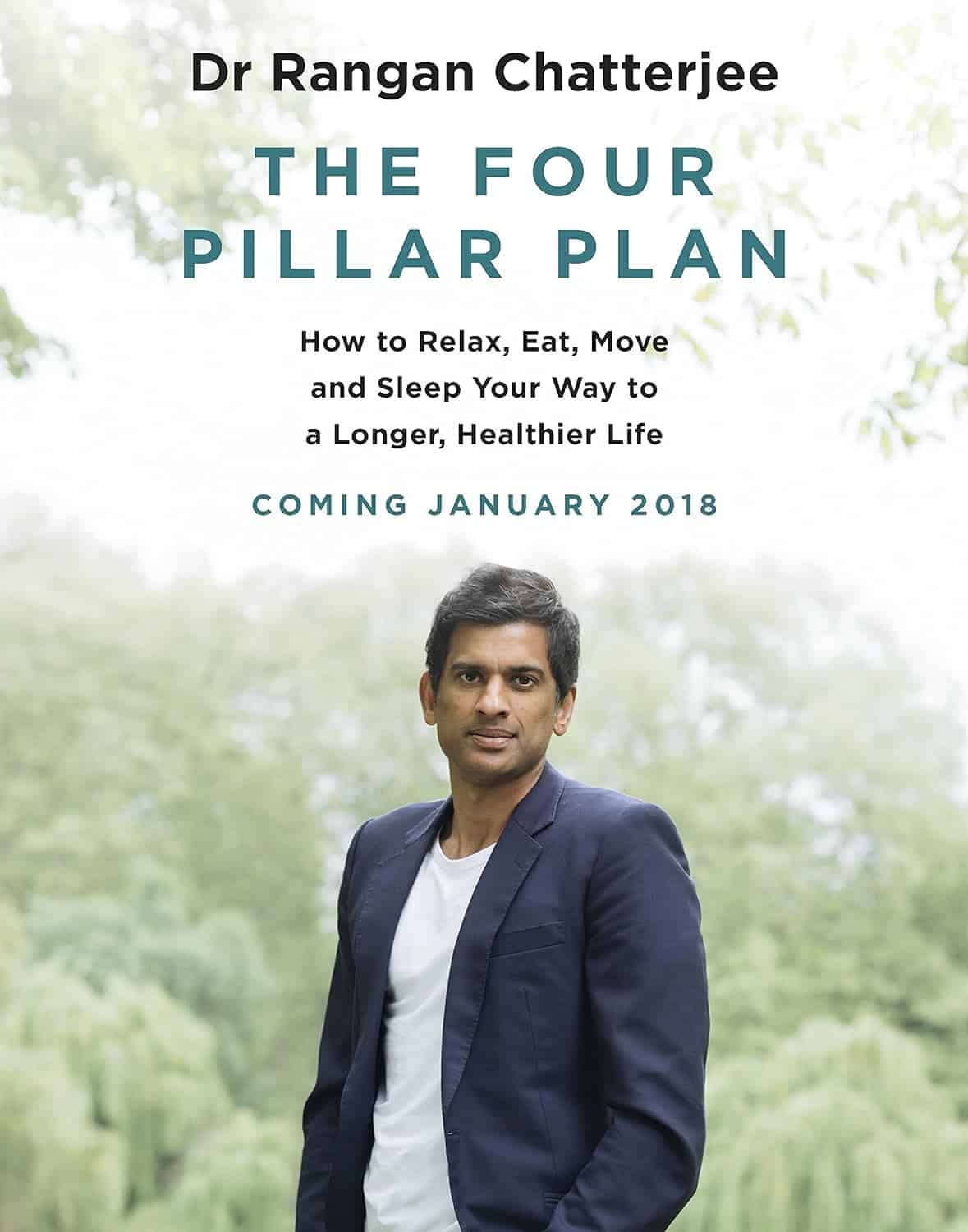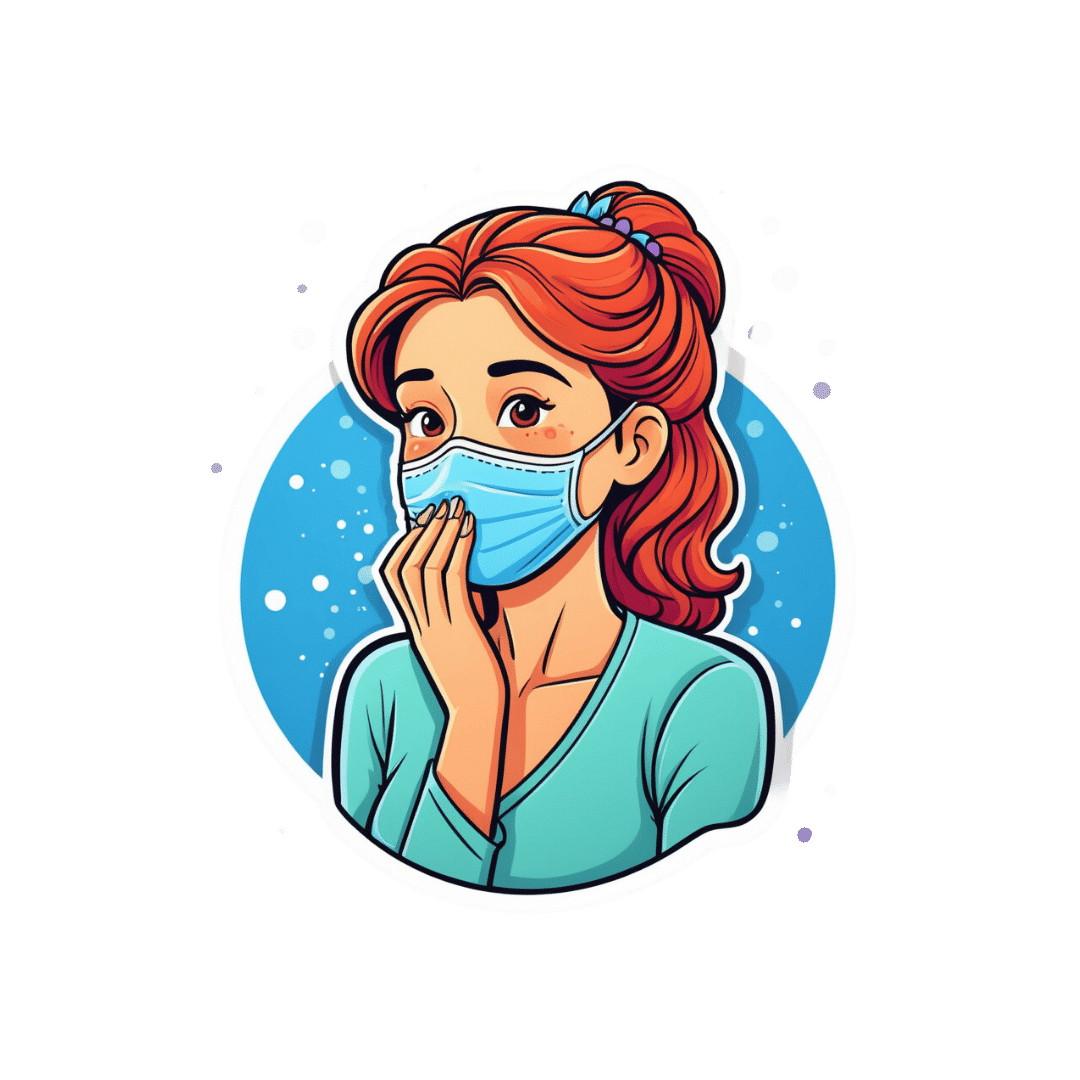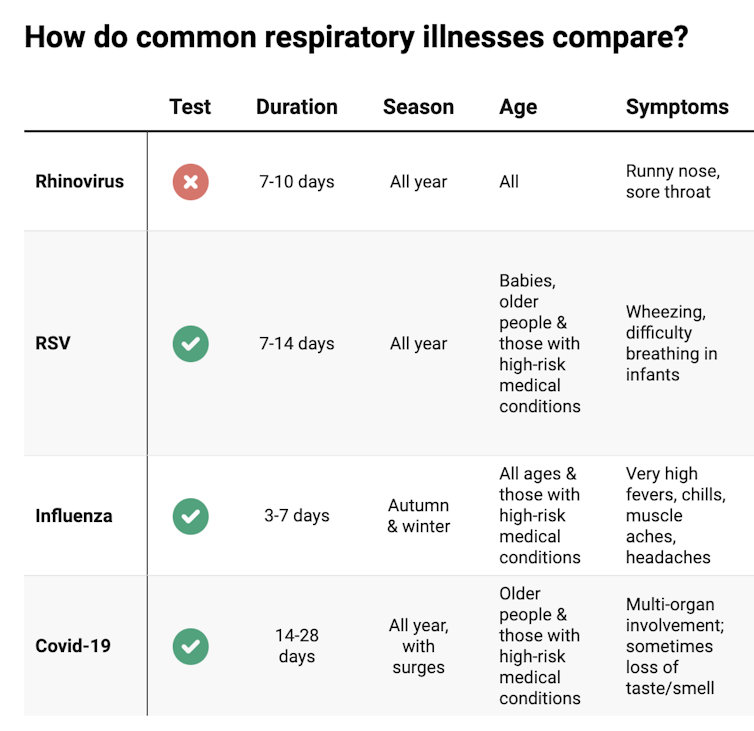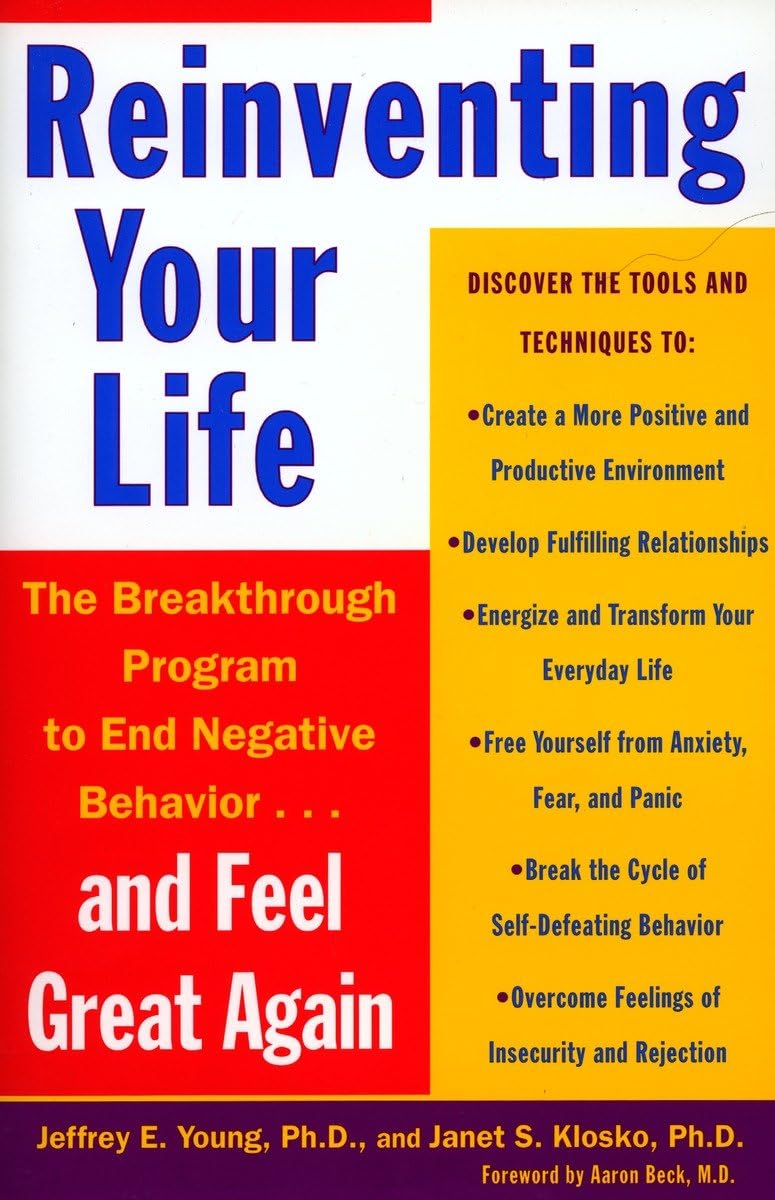
Reinventing Your Life – by Dr. Jeffrey Young & Dr. Janet Klosko
10almonds is reader-supported. We may, at no cost to you, receive a portion of sales if you purchase a product through a link in this article.
This book is quite unlike any other broadly-CBT-focused books we’ve reviewed before. How so, you may wonder?
Rather than focusing on automatic negative thoughts and cognitive distortions with a small-lens focus on an immediate problem, this one zooms out rather and tackles the cause rather than the symptom.
The authors outline eleven “lifetraps” that we can get stuck in:
- Abandonment
- Mistrust & abuse
- Vulnerability
- Dependence
- Emptional deprivation
- Social exclusion
- Defectiveness
- Failure
- Subjugation
- Unrelenting standards
- Entitlement
They then borrow from other areas of psychology, to examine where these things came from, and how they can be addressed, such that we can escape from them.
The style of the book is very reader-friendly pop-psychology, with illustrative (and perhaps apocryphal, but no less useful for it if so) case studies.
The authors then go on to give step-by-step instructions for dealing with each of the 11 lifetraps, per 6 unmet needs we probably had that got us into them, and per 3 likely ways we tried to cope with this using maladaptive coping mechanisms that got us into the lifetrap(s) we ended up in.
Bottom line: if you feel there’s something in your life that’s difficult to escape from (we cannot outrun ourselves, after all, and bring our problems with us), this book could well contain the key that you need to get out of that cycle.
Click here to check out “Reinventing Your Life” and break free from any lifetrap(s) of your own!
Don’t Forget…
Did you arrive here from our newsletter? Don’t forget to return to the email to continue learning!
Recommended
Learn to Age Gracefully
Join the 98k+ American women taking control of their health & aging with our 100% free (and fun!) daily emails:
-
PTSD, But, Well…. Complex.
10almonds is reader-supported. We may, at no cost to you, receive a portion of sales if you purchase a product through a link in this article.
PTSD is typically associated with military veterans, for example, or sexual assault survivors. There was a clear, indisputable, Bad Thing™ that was experienced, and it left a psychological scar. When something happens to remind us of that—say, there are fireworks, or somebody touches us a certain way—it’ll trigger an immediate strong response of some kind.
These days the word “triggered” has been popularly misappropriated to mean any adverse emotional reaction, often to something trivial.
But, not all trauma is so clear. If PTSD refers to the result of that one time you were smashed with a sledgehammer, C-PTSD (Complex PTSD) refers to the result of having been hit with a rolled-up newspaper every few days for fifteen years, say.
This might have been…
- childhood emotional neglect
- a parent with a hair-trigger temper
- bullying at school
- extended financial hardship as a young adult
- “just” being told or shown all too often that your best was never good enough
- the persistent threat (real or imagined) of doom of some kind
- the often-reinforced idea that you might lose everything at any moment
If you’re reading this list and thinking “that’s just life though”, you might be in the estimated 1 in 5 people with (often undiagnosed) C-PTSD.
How About You? Take The (5mins) Test Here
Now, we at 10almonds are not doctors or therapists and even if we were, we certainly wouldn’t try to diagnose from afar. But, even if there’s only a partial match, sometimes the same advice can help.
So what are the symptoms of C-PTSD?
- A feeling that nothing is safe; we might suddenly lose what we have gained
- The body keeps the score… And it shows. We may have trouble relaxing, an aversion to exercise for reasons that don’t really add up, or an aversion to being touched.
- Trouble sleeping, born of nagging sense that to sleep is to be vulnerable to attack, and/or lazy, and/or negligent of our duties
- Poor self-image, about our body and/or about ourself as a person.
- We’re often drawn to highly unavailable people—or we are the highly unavailable person to which our complementary C-PTSD sufferers are attracted.
- We are prone to feelings of rage. Whether we keep a calm lid on it or lose our temper, we know it’s there. We’re angry at the world and at ourselves.
- We are not quick to trust—we may go through the motions of showing trust, but we’re already half-expecting that trust to have been misplaced.
- “Hell is other people” has become such a rule of life that we may tend to cloister ourselves away from company.
- We may try to order our environment around us as a matter of safety, and be easily perturbed by sudden changes being imposed on us, even if ostensibly quite minor or harmless.
- In a bid to try to find safety, we may throw ourselves into work—whatever that is for us. It could be literally our job, or passion projects, or our family, or community, and in and of itself that’s great! But the motivation is more of an attempt to distract ourselves from The Horrors™.
“Alright, I scored more of those than I care to admit. What now?”
A lot of the answer lies in first acknowledging to yourself what happened, to make you feel the way you do now. If you, for example, have an abject hatred of Christmas, what were your childhood Christmases like? If you fear losing money that you’ve accumulated, what underpins that fear? It could be something that directly happened to you, but it also could just be repeated messages you received from your parents, for example.
It could even be that you had superficially an idyllic perfect childhood. Health, wealth, security, a loving family… and simply a chemical imbalance in your brain made it a special kind of Hell for you that nobody understood, and perhaps you didn’t either.
Unfortunately, a difficult task now lies ahead: giving love, understanding, compassion, and reassurance to the person for whom you may have the most contempt in the world: yourself.
If you’d like some help with that, here are some resources:
ComplexTrauma.org (a lot of very good free resources, with no need for interaction)
CPTSD Foundation (mostly paid courses and the like)
Some final words about healing…
- You are in fact amazing,
- You can do it, and
- You deserve it.
Share This Post
-
Rushing Woman’s Syndrome – by Dr. Libby Weaver
10almonds is reader-supported. We may, at no cost to you, receive a portion of sales if you purchase a product through a link in this article.
It’s well-known that very many women suffer from “the triple burden” of professional work, housework, and childcare. And it’s not even necessarily that we resent any of those things or feel like they’re a burden; we (hopefully) love our professions, homes, children. But, here’s the thing: no amount of love will add extra hours to the day!
On the psychological level, a lot is about making more conscious decisions and fewer automatic reactions. For example, everyone wants everything from us right now, if not by yesterday, but when do they need it? And, is it even our responsibility? Not everything is, and many of us take on more than we should in our effort to be “enough”.
On the physical level, she covers hormones, including the menstrual/menopausal and the metabolic, as well as liver health, digestive issues, and sleep.
The style is direct and friendly, making frequent references to science but not getting deep into it.
It’s worth noting that while she acknowledges other demographics exist, she’s writing mainly for an audience of otherwise healthy straight white women with children and at least moderate financial resources, so if you fall outside of those things, there may be things that society will penalize you for and expect more from you in return for less, so that is a limitation of the book.
Bottom line: if the above describes you, you will probably get value out of this book.
Click here to check out Rushing Woman’s Syndrome, and take care of yourself too!
Share This Post
-
Optimism Seriously Increases Longevity!
10almonds is reader-supported. We may, at no cost to you, receive a portion of sales if you purchase a product through a link in this article.
Always look on the bright side for life
❝I’m not a pessimist; I’m a realist!❞
~ every pessimist ever
To believe self-reports, the world is divided between optimists and realists. But how does your outlook measure up, really?
Below, we’ve included a link to a test, and like most free online tests, this is offered “as-is” with the usual caveats about not being a clinical diagnostic tool, this one actually has a fair amount of scientific weight behind it:
❝Empirical testing has indicated the validity of the Optimism Pessimism Instrument as published in the scientific journal Current Psychology: Research and Reviews.
The IDRlabs Optimism/Pessimism Test (IDR-OPT) was developed by IDRlabs. The IDR-OPT is based on the Optimism/Pessimism Instrument (OPI) developed by Dr. William Dember, Dr. Stephanie Martin, Dr. Mary Hummer, Dr. Steven Howe, and Dr. Richard Melton, at the University of Cincinnati.❞
Take This Short (1–2 mins) Test
How did you score? And what could you do to improve on that score?
We said before that we’d do a main feature on this sometime, and today’s the day! Fits with the theme of Easter too, as for those who observe, this is a time for a celebration of hope, new beginnings, and life stepping out of the shadows.
On which note, before we go any further, let’s look at a very big “why” of optimism…
There have been many studies done regards optimism and health, and they generally come to the same conclusion: optimism is simply good for the health.
Here’s an example. It’s a longitudinal study, and it followed 121,700 women (what a sample size!) for eight years. It controlled for all kinds of other lifestyle factors (especially smoking, drinking, diet, and exercise habits, as well as pre-existing medical conditions), so this wasn’t a case of “people who are healthy are more optimistic as a result. And, in the researchers’ own words…
❝We found strong and statistically significant associations of increasing levels of optimism with decreasing risks of mortality, including mortality due each major cause of death, such as cancer, heart disease, stroke, respiratory disease, and infection.
Importantly, findings were maintained after close control for potential confounding factors, including sociodemographic characteristics and depression❞
Read: Optimism and Cause-Specific Mortality: A Prospective Cohort Study
So that’s the why. Now for the how…
Positive thinking is not what you think it is
A lot of people think of “think positive thoughts” as a very wishy-washy platitude, but positive thinking isn’t about ignoring what’s wrong, or burying every negative emotion.
Rather, it is taking advantage of the basic CBT, DBT, and, for that matter, NLP principles:
- Our feelings are driven by our thoughts
- Our thoughts can be changed by how we frame things
This is a lot like the idea that “there’s not such thing as bad weather; only the wrong clothes”. Clearly written by someone who’s never been in a hurricane, but by and large, the principle stands true.
For example…
- Most problems can be reframed as opportunities
- Replace “I have to…” with “I get to…”
- Will the task be arduous? It’ll be all the better looking back on it.
- Did you fail abjectly? Be proud that you lived true to your values anyway.
A lot of this is about focusing on what you can control. If you live your life by your values (first figure out what they are, if you haven’t already), then that will become a reassuring thing that you can always count on, no matter what.
Practice positive self-talk (eliminate the negative)
We often learn, usually as children, to be self deprecatory so as to not appear immodest. While modesty certainly has its place, we don’t have to trash ourselves to do that!
There are various approaches to this, for example:
- Replacing a self-criticism (whether it was true or not) with a neutral or positive statement that you know is true. “I suck at xyz” is just putting yourself down, “Xyz is a challenge for me” asks the question, how will you rise to it?
- Replacing a self-criticism with irony. It doesn’t matter how dripping with sarcasm your inner voice is, the words will still be better. “Glamorous as ever!” after accidentally putting mascara in your eye. “So elegant and graceful!” after walking into furniture. And so on.
Practice radical acceptance
This evokes the “optimistic nihilism” approach to life. It’s perhaps not best in all scenarios, but if you’re consciously and rationally pretty sure something is going to be terrible (and/or know it’s completely outside of your control), acknowledging that possibility (or even, likelihood) cheerfully. Borrowing from the last tip, this can be done with as much irony as you find necessary. For example:
Facing a surgery the recovery from which you know categorically will be very painful: with a big smile “Yep, I am going to be in a lot of pain, so that’s going to be fun!” (fun fact: psychological misery will not make the physical pain any less painful, so you might as well see the funny side) ← see link for additional benefits laughter can add to health-related quality of life)
Plan for the future with love
You know the whole “planting trees in whose shade you’ll never sit”, thing, but: actually for yourself too. Plan (and act!) now, out of love and compassion for your future self.
Simple example: preparing (or semi-preparing, if appropriate) breakfast for yourself the night before, when you know in the morning you’ll be tired, hungry, and/or pressed for time. You’ll wake up, remember that you did that, and…
Tip: at moments like that, take a moment to think “Thanks, past me”. (Or call yourself by your name, whatever works for you. For example I, your writer here, might say to myself “Thanks, past Nastja!”)
This helps to build a habit of gratitude for your past self and love for your future self.
This goes for little things like the above, but it also goes for things whereby there’s much longer-term delayed gratification, such as:
- Healthy lifestyle changes (usually these see slow, cumulative progress)
- Good financial strategies (usually these see slow, cumulative progress)
- Long educational courses (usually these see slow, cumulative progress)
Basically: pay it forward to your future self, and thank yourself later!
Some quick ideas of systems and apps that go hard on the “long slow cumulative progress” approach that you can look back on with pride:
- Noom—nutritional program with a psychology-based approach to help you attain and maintain your goals, long term
- You Need A Budget—we’ve recommended it before and we’ll recommend it again. This is so good. If you click through, you can see a short explanation of what makes it so different to other budgeting apps.
- Duolingo—the famously persistence-motivational language learning app
Share This Post
Related Posts
-
The Four Pillar Plan – by Dr. Rangan Chatterjee
10almonds is reader-supported. We may, at no cost to you, receive a portion of sales if you purchase a product through a link in this article.
Dr. Rangan Chatterjee, a medical doctor, felt frustrated with how many doctors in his field focus on treating the symptoms of disease, rather than the cause. Sometimes, of course, treating the symptom is necessary too! But neglecting the cause is a recipe for long-term woes.
What he does differently is take lifestyle as a foundation, and even that, he does differently than many authors on the topic. How so, you may wonder?
Rather than look first at exercise and diet, he starts with “relax”. His rationale is reasonable: diving straight in with marathon training or a whole new diet plan can be unsustainable without this as a foundation to fall back on.
Many sources look first at exercise (because it can be a very simple “prescription”) before diet (often more complex)… but how does one exercise well with the wrong fuel in the tank? So Dr. Chatterjee’s titular “Four Pillars” come in the following order:
- Relax
- Eat
- Move
- Sleep
He also goes for “move” rather than “exercise” as the focus here is more on minimizing time spent sitting, and thus involving a lot of much more frequent gentle activities… rather than intensive training programs and the like.
And as for sleep? Yes, that comes last because—no matter how important it is—the other things are easier to directly control. After all, one can improve conditions for sleep, but one cannot simply choose to sleep better! So with the other three things covered first, good sleep is the fourth and final thing to fall into place.
All in all, this is a great book to cut through the catch-22 problem of lifestyle factors negatively impacting each other.
Don’t Forget…
Did you arrive here from our newsletter? Don’t forget to return to the email to continue learning!
Learn to Age Gracefully
Join the 98k+ American women taking control of their health & aging with our 100% free (and fun!) daily emails:
-
Sunflower Oil vs Canola Oil – Which is Healthier?
10almonds is reader-supported. We may, at no cost to you, receive a portion of sales if you purchase a product through a link in this article.
Our Verdict
When comparing sunflower oil to canola oil, we picked the sunflower oil.
Why?
They’re both terrible! But canola oil is worse. Sunflower oil is marketed as being higher in polyunsaturated fats, which it is, albeit not by much.
Canola oil is very bad for the heart, and sunflower oil is only moderately bad for the heart, to the point that it can be heart-neutral if used sparingly.
As seed oils, they are both sources of vitamin E, but you’d need to drink a cup of oil to get your daily dose, so please just eat some seeds (or nuts, or fruit, or something) instead. It can even be sunflower seeds if you like! Rapeseed* itself (the seed that canola oil is made from) isn’t really sold as a foodstuff, so that one’s less of an option.
*Fun fact: if you’re N. American and wondering what this “rapeseed” is, know that most of the rest of the Anglosphere calls canola oil “rapeseed oil”, as it’s made from rapeseed, which comes from a plant called rape, whose name is unrelated to the crime of the same name, and comes from rāpa, the Latin word for turnip. Anyway, “canola” is a portmanteau of “Canadian” and “Ola” meaning oil, and is a trademark that has made its way into generic use throughout N. America, as a less alarming name.
Back to health matters: while sunflower seeds are healthy in moderation, the ultraprocessed and refined sunflower and canola oils are not.
Canola oil has also been found to be implicated in age-related cognitive decline, whereas sunflower oil has had mixed results in that regard.
In summary
Sunflower oil is relatively, and we stress relatively, healthier than canola oil. Please use a healthier oil than either if you can. Olive oil is good for most things, and if you need something with a higher smoke point (and/or less distinctive flavor), consider avocado oil, which is also very healthy and whose smoke point is even higher than the seed oils we’ve been discussing today.
Want to know more?
Check out:
Avocado Oil vs Olive Oil – Which is Healthier?
Enjoy!
Don’t Forget…
Did you arrive here from our newsletter? Don’t forget to return to the email to continue learning!
Learn to Age Gracefully
Join the 98k+ American women taking control of their health & aging with our 100% free (and fun!) daily emails:
-
I have a stuffy nose, how can I tell if it’s hay fever, COVID or something else?
10almonds is reader-supported. We may, at no cost to you, receive a portion of sales if you purchase a product through a link in this article.
Hay fever (also called allergic rhinitis) affects 24% of Australians. Symptoms include sneezing, a runny nose (which may feel blocked or stuffy) and itchy eyes. People can also experience an itchy nose, throat or ears.
But COVID is still spreading, and other viruses can cause cold-like symptoms. So how do you know which one you’ve got?
Lysenko Andrii/Shutterstock Remind me, how does hay fever cause symptoms?
Hay fever happens when a person has become “sensitised” to an allergen trigger. This means a person’s body is always primed to react to this trigger.
Triggers can include allergens in the air (such as pollen from trees, grasses and flowers), mould spores, animals or house dust mites which mostly live in people’s mattresses and bedding, and feed on shed skin.
When the body is exposed to the trigger, it produces IgE (immunoglobulin E) antibodies. These cause the release of many of the body’s own chemicals, including histamine, which result in hay fever symptoms.
People who have asthma may find their asthma symptoms (cough, wheeze, tight chest or trouble breathing) worsen when exposed to airborne allergens. Spring and sometimes into summer can be the worst time for people with grass, tree or flower allergies.
However, animal and house dust mite symptoms usually happen year-round.
Ryegrass pollen is a common culprit. bangku ceria/Shutterstock What else might be causing my symptoms?
Hay fever does not cause a fever, sore throat, muscle aches and pains, weakness, loss of taste or smell, nor does it cause you to cough up mucus.
These symptoms are likely to be caused by a virus, such as COVID, influenza, respiratory syncytial virus (RSV) or a “cold” (often caused by rhinoviruses). These conditions can occur all year round, with some overlap of symptoms:
Natasha Yates/The Conversation COVID still surrounds us. RSV and influenza rates appear higher than before the COVID pandemic, but it may be due to more testing.
So if you have a fever, sore throat, muscle aches/pains, weakness, fatigue, or are coughing up mucus, stay home and avoid mixing with others to limit transmission.
People with COVID symptoms can take a rapid antigen test (RAT), ideally when symptoms start, then isolate until symptoms disappear. One negative RAT alone can’t rule out COVID if symptoms are still present, so test again 24–48 hours after your initial test if symptoms persist.
You can now test yourself for COVID, RSV and influenza in a combined RAT. But again, a negative test doesn’t rule out the virus. If your symptoms continue, test again 24–48 hours after the previous test.
If it’s hay fever, how do I treat it?
Treatment involves blocking the body’s histamine release, by taking antihistamine medication which helps reduce the symptoms.
Doctors, nurse practitioners and pharmacists can develop a hay fever care plan. This may include using a nasal spray containing a topical corticosteroid to help reduce the swelling inside the nose, which causes stuffiness or blockage.
Nasal sprays need to delivered using correct technique and used over several weeks to work properly. Often these sprays can also help lessen the itchy eyes of hay fever.
Drying bed linen and pyjamas inside during spring can lessen symptoms, as can putting a smear of Vaseline in the nostrils when going outside. Pollen sticks to the Vaseline, and gently blowing your nose later removes it.
People with asthma should also have an asthma plan, created by their doctor or nurse practitioner, explaining how to adjust their asthma reliever and preventer medications in hay fever seasons or on allergen exposure.
People with asthma also need to be alert for thunderstorms, where pollens can burst into tinier particles, be inhaled deeper in the lungs and cause a severe asthma attack, and even death.
What if it’s COVID, RSV or the flu?
Australians aged 70 and over and others with underlying health conditions who test positive for COVID are eligible for antivirals to reduce their chance of severe illness.
Most other people with COVID, RSV and influenza will recover at home with rest, fluids and paracetamol to relieve symptoms. However some groups are at greater risk of serious illness and may require additional treatment or hospitalisation.
For RSV, this includes premature infants, babies 12 months and younger, children under two who have other medical conditions, adults over 75, people with heart and lung conditions, or health conditions that lessens the immune system response.
For influenza, people at higher risk of severe illness are pregnant women, Aboriginal people, people under five or over 65 years, or people with long-term medical conditions, such as kidney, heart, lung or liver disease, diabetes and decreased immunity.
If you’re concerned about severe symptoms of COVID, RSV or influenza, consult your doctor or call 000 in an emergency.
If your symptoms are mild but persist, and you’re not sure what’s causing them, book an appointment with your doctor or nurse practitioner. Although hay fever season is here, we need to avoid spreading other serious infectious.
For more information, you can call the healthdirect helpline on 1800 022 222 (known as NURSE-ON-CALL in Victoria); use the online Symptom Checker; or visit healthdirect.gov.au or the Australian Society of Clinical Immunology and Allergy.
Deryn Thompson, Eczema and Allergy Nurse; Lecturer, University of South Australia
This article is republished from The Conversation under a Creative Commons license. Read the original article.
Don’t Forget…
Did you arrive here from our newsletter? Don’t forget to return to the email to continue learning!
Learn to Age Gracefully
Join the 98k+ American women taking control of their health & aging with our 100% free (and fun!) daily emails:

